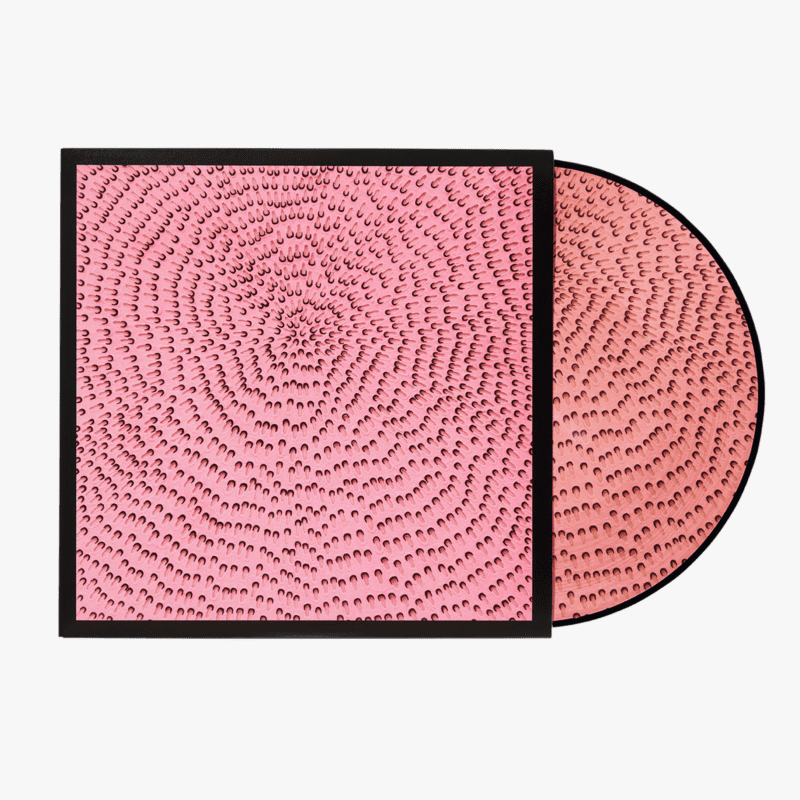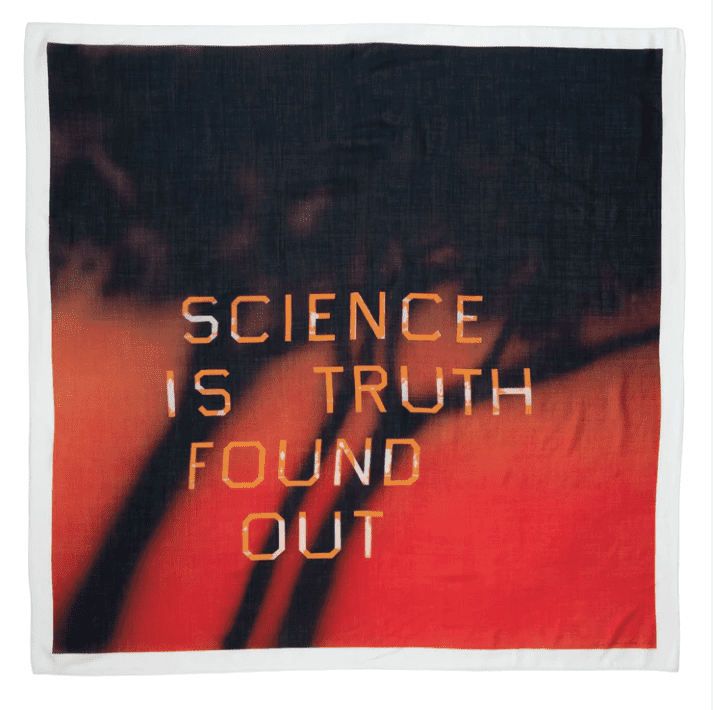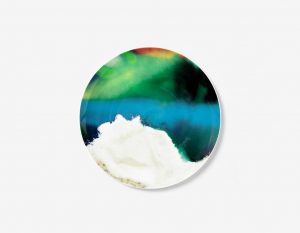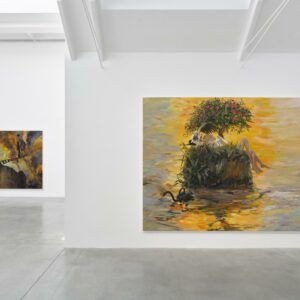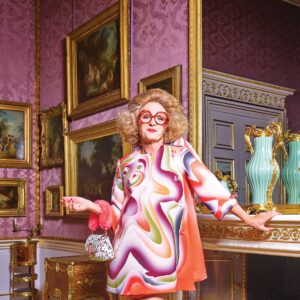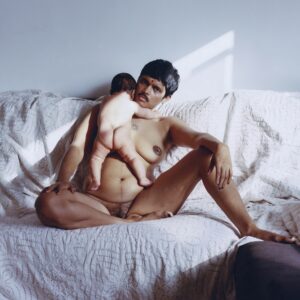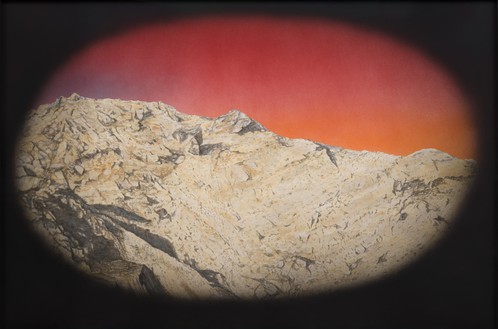
In 2017, Ruscha began Spied Upon Scene, a series depicting majestic mountainscapes that resemble the idyllic ranges of travel books, postcards, adventure movies, or the Paramount Pictures logo. The series descends from his earlier Mountain Paintings, in which inscrutable phrases, laid over the mountain images, become a wry and physical presence in the landscape. The mountains of Spied Upon Scene, however, are partially restricted from view, visible only through oval-shaped lenses or window grids. Like the Mountain Paintings, they seem to refer to the nineteenth-century tradition of the American Sublime; in fact, their lineage includes an obscure American painter from the turn of the century, Louis Michel Eilshemius, whose use of painted frames became an influence on Ruscha’s own approach.
In the late nineteenth century Eilshemius studied at the Art Students League of New York, and then the Académie Julian in Paris, before moving back to New York. His paintings have a brash, almost parodic sense of arcadian fantasy, or naive art. Works such as Fanciful Landscape (1907) and Wading (1919) show dramatic, dreamlike scenes without much pretense to reality. Amid the ascendant avant-garde movement, Eilshemius’s works were unusual for their romantic, enraptured portrayals.
In 1909, Eilshemius began placing the subject matter of his paintings within frames painted directly onto the canvas or support. In a handbill advertisement from 1910, he described his method in the third person, writing, “His self-made frames are very light in weight, do not break, are attractive, no wood is used, made with little labor, are luminous.” Some frames resemble the timber surrounds that have been in wide use since the Renaissance, while others recall spy hatches, peepholes, or telescopic restrictions, such as in Untitled (Nude in a Landscape) (c. 1909–13).
Though his work received little attention during his lifetime, Eilshemius’s belief in its superiority and his indignant public proclamations regarding his own skills and accomplishments earned him an eccentric reputation; he was particularly known for the verbose letters he sent to newspaper editors. In 1917, Eilshemius’s work caught the attention of Marcel Duchamp at the First Annual Exhibition of the Society of Independent Artists in New York, to which Duchamp himself had submitted his readymade Fountain (1917), which was famously rejected from the exhibition. Duchamp described Eilshemius’s painting, a female nude titled Supplication (1916), as one of the best things in the show. This brought Eilshemius his first critical recognition, mixed though it was. Later, the same restricted view seen in Eilshemius’s paintings appeared Duchamp’s work, most notably in the controversial Étant donnés (1946–66)—and now, in Ruscha’s work.
The paintings of Eilshemius—an artist’s artist—have been collected by Louise Bourgeois, Jeff Koons, Louise Nevelson, Ugo Rondinone, and Peter Schuyff, as well as by various American museums. Yet, he is seldom exhibited alongside the work of living artists. The unique pairing with Ruscha in this exhibition shows Eilshemius’s work—here drawn from Ruscha’s own collection—in a new light, elucidating a link between the two artists through American history.
In Ed Ruscha: Eilshemius & Me, landscape emerges as a set of ideas rather than a dutiful imitation of reality. The picture’s frame, whether physically real or illusionistically painted, isolates the painter’s vision, demarcating and confining it, almost like a theater curtain or the contracting aperture of a camera lens over a silent film—slowly revealing the plane on which the artist’s storytelling will take place, ready to contract again when the story is told.
This exhibition overlaps with Ruscha’s ARTIST ROOMS display at Tate Modern, London, which opens on July 25. That evening, Ruscha will appear in conversation at Tate Modern with Frances Morris, Director of Tate Modern.
Ed Ruscha: Eilshemius & Me Opening reception: Tuesday, June 18, 6–8pm June 18–August 2, 2019 17–19 Davies Street, London
gagosian.com
